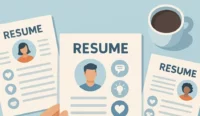Inside Look: The Google Interview Process Revealed by a Successful Candidate
In today’s competitive job market, landing a position at a tech giant like Google remains the ultimate career achievement for many professionals. The Google interview process is notoriously challenging, with countless myths and stories circulating about its complexity. But what’s the reality behind securing a role at this coveted employer?
Recently, we had the opportunity to speak with Richard, who successfully navigated the Google interview process and landed a position as Program Manager of Culture and Development. His journey provides valuable insights for anyone aspiring to join the ranks at Google or other tech giants.
“This was simultaneously the most difficult as well as the easiest interview process I’ve ever had to prep for,” Richard shared, highlighting the unique paradox that defines Google’s approach to hiring.
The Complete Google Interview Process Timeline
The Google interview process that Richard experienced lasted approximately two months from application to offer. Here’s how his journey unfolded:
- Application with referral – Richard emphasized the importance of applying with an employee referral
- Automated questionnaire – A non-technical behavioral assessment testing for “Googliness”
- Initial recruiter call – Aligning expectations around compensation and location
- Hiring manager interview – First official interview in the process
- Panel interviews – Three 45-minute interviews with various team members
- Informal team conversation – A final discussion that, while labeled “not an interview,” still required preparation
- One-month waiting period – Extended evaluation as other candidates completed the process
“It took about two months. I applied around late February or early March, and went through all of my interviews—of which there were four rounds—within about a month. That was a pretty fast process,” Richard explained.
The Automated Screening Phase
One particularly interesting development in Google’s hiring process is the implementation of an automated questionnaire system, which Richard notes was rolled out in early 2024.
“My understanding is that Google rolled this out around last year, sometime early 2024. The idea was to help stem the flow of just how many applications they were getting,” he explained.
For non-technical roles like Richard’s, the questionnaire focused primarily on behavioral aspects, assessing work ethic and collaboration skills. Technical positions reportedly receive more technically-oriented questions during this initial screening.
Strategic Preparation for Google Interviews
Leveraging Available Resources
What makes the Google interview process unique is the abundance of preparation resources available. As Richard noted, “Because it’s Google, there’s been so much content about it. More so than any other job I’ve ever applied for, there were so many things I could actually reference and look up online.”
These resources include:
- Experiences shared by previous candidates
- Content from former Google recruiters who now work as career coaches
- Numerous YouTube channels dedicated to Google interview preparation
- Online forums and communities focused on tech interviews
Effective Preparation Techniques
Richard’s preparation strategy included several key elements that contributed to his success:
- Structured storytelling – Developing 2-3 key skills or learning moments for each professional story
- AI-assisted question generation – Using ChatGPT to create practice questions based on the job description
- Mock interviews – Rehearsing with his partner using recruiter-provided question topics
- Timing practice – Ensuring concise, focused responses without rambling
- Recruiter guidance – Leveraging insights provided by the Google recruiter about interview topics
“I use ChatGPT to help me generate a list of sample questions, feeding it the job description and the research I’ve done on the team. And I asked ChatGPT to give me sample interview questions based on what I think they’re going to ask me,” Richard shared.
Starting a New Role at Google: Strategies for Success
For professionals who successfully navigate the Google interview process, the next challenge becomes making a strong start in the new role. Richard’s approach emphasizes relationship-building over immediate task accomplishment.
“The advice that I’ve been given is to take your time, get to know the landscape, get to know the players, get to know your stakeholders. Don’t be too quick to throw yourself into a workstream and try to make something happen right away,” he advises.
This measured approach is particularly important in large organizations like Google, where understanding the ecosystem before attempting to make changes can prevent missteps.
Richard’s starting strategy includes:
- Attending the office frequently (five days a week despite only being required for two)
- Building relationships with team members, especially on a distributed team
- Understanding the organizational landscape before attempting major initiatives
- Balancing the desire to make an immediate impact with the need to learn the environment
Leveraging LinkedIn for Professional Growth
As professionals navigate their careers, LinkedIn serves as a valuable tool for networking, job searching, and knowledge sharing. Richard’s approach to LinkedIn has evolved throughout his career journey:
- During entrepreneurial phases – More aggressive posting to attract freelance consulting opportunities
- During job searches – Focused on positioning himself as a desirable candidate
- Post-hiring – Sharing insights about the hiring process to help others
- Industry monitoring – Tracking developments in his field (DEI) during political transitions
“I try to use LinkedIn as a personal space for me to reflect and process my thoughts on all these things, but also, most importantly, just try to be helpful,” Richard explains.
His commitment to “sharing back and paying it forward” demonstrates how professionals can use LinkedIn not just for personal advancement but also to contribute to their broader professional community.
For more insights on optimizing your LinkedIn profile, check out our article on mastering the LinkedIn algorithm for job search success.
FAQ: Mastering the Google Interview Process
What makes the Google interview process different from other companies?
The Google interview process stands out for its structured approach and comprehensive evaluation of candidates. While many companies focus primarily on technical skills or cultural fit, Google balances both through multiple interview rounds. According to Richard’s experience, Google provides candidates with more preparation guidance than most companies, including sample question topics from recruiters. Additionally, there’s an abundance of preparation resources available online specifically for Google interviews, making it simultaneously challenging yet more approachable than many other competitive hiring processes.
How important is having a referral when applying to Google?
Having a referral is extremely valuable when applying to Google. Richard specifically emphasized, “Applied with a referral, which I highly recommend to all the listeners.” A referral helps your application stand out among thousands of submissions and significantly increases your chances of making it past the initial screening. Internal referrals demonstrate that someone who understands Google’s culture and standards believes you would be a good fit, giving recruiters more confidence in considering your application.
How should I prepare for Google’s automated questionnaire screening?
To prepare for Google’s automated questionnaire screening, focus on demonstrating your “Googliness” through your responses. For non-technical roles, emphasize your collaborative approach, work ethic, and problem-solving mindset. For technical positions, be prepared for more skill-based questions. Research Google’s core values and culture to understand what traits they’re screening for. Practice articulating your experiences in ways that highlight these qualities, keeping responses concise and authentic. Remember that this screening was implemented to help filter the high volume of applications, so your responses should clearly demonstrate why you’re a strong match for Google’s culture.
What’s the best strategy for the first few weeks at Google after getting hired?
The best strategy for your first few weeks at Google is to prioritize relationship-building and understanding the organizational landscape before attempting to make significant contributions. As Richard advised, “Take your time, get to know the landscape, get to know the players, get to know your stakeholders.” Rather than immediately trying to prove yourself through deliverables, invest time in understanding how different teams interact, who the key stakeholders are, and how decisions are made. Attend the office frequently if possible, even beyond required days, to facilitate connections. This approach allows you to identify where and how you can make the most meaningful impact once you understand the ecosystem, preventing missteps that might occur from acting too quickly without context.






